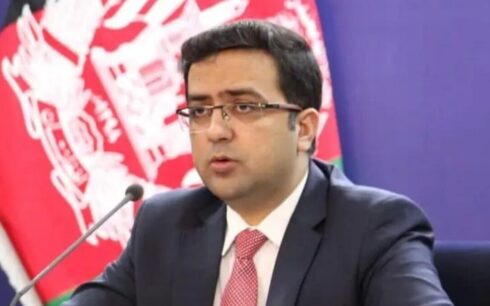THE HAGUE — President Trump’s sweeping sanctions against the chief prosecutor of the International Criminal Court have disrupted war crimes investigations and severely hindered the tribunal’s operations, the Associated Press reported on Thursday, quoting current and former court officials, lawyers and human rights advocates.
Since the sanctions were imposed in February, Prosecutor Karim Khan has lost access to his email, had his bank accounts frozen, and faces criminal penalties for receiving support from any individual or institution under U.S. jurisdiction. American staff members at the court have been warned they could be arrested if they return to the United States, and at least six senior officials have stepped down out of legal concern.
The White House implemented the measures days after ICC judges issued arrest warrants for Israeli Prime Minister Benjamin Netanyahu and former defense minister Yoav Gallant, citing evidence of war crimes in Gaza. Israeli officials have rejected the charges.
Trump, on the first foreign policy trip of his second term, has defended the move as necessary to protect U.S. allies. The sanctions bar Khan and other non-American staff from entering the United States and penalize any American citizen or company that offers the court “financial, material, or technological support.”
Human rights groups warn the effect has been chilling.
“It’s just simply insane to believe that things have changed for the better in Afghanistan for people who have a relationship with the United States of America,” said Shawn Vandiver, president of AfghanEvac, criticizing broader deportation policies also introduced this year. “We owe it to these folks to keep them safe. Now, they’ve been in America for 3.5 years. If we send them back, they are going to die.”
Liz Evenson, international justice director at Human Rights Watch, said the ICC is being “obstructed at a time when accountability is desperately needed.”
Court officials say investigations have stalled not only in Gaza, but also in Sudan, where the ICC had pursued former president Omar al-Bashir over charges of genocide. A U.S.-based prosecutor on the case, Eric Iverson, has filed a federal lawsuit seeking relief from the sanctions, arguing that he can no longer fulfill his basic legal duties.
Allison Miller, his attorney, said the restrictions have left staff “legally paralyzed.”
Judge Tomoko Akane, president of the ICC, condemned the sanctions in February as “serious attacks against the Court’s States Parties, the rule-of-law-based international order, and millions of victims.”
While the Trump administration says the sanctions target abuse of international law, advocates argue they risk permanently damaging the world’s leading institution for prosecuting war crimes and crimes against humanity.
The ICC has made no official comment on the sanctions, but its capacity to function — already fragile in the face of global crises — now hangs in the balance.





